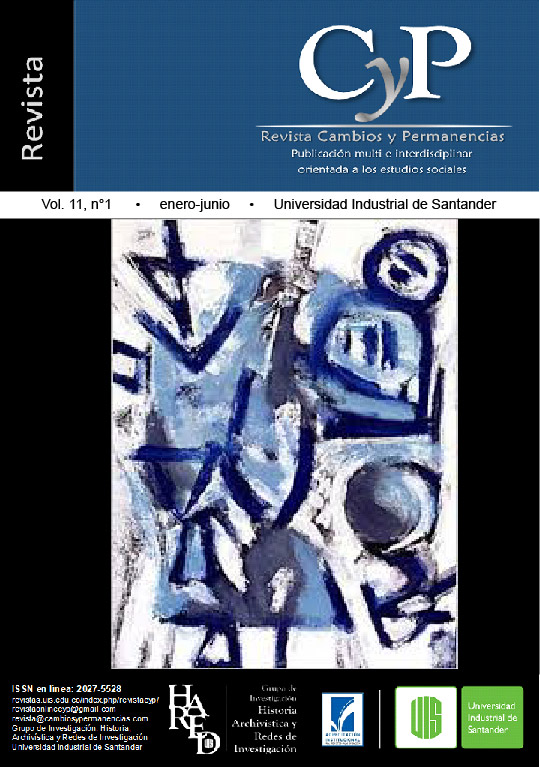La María-Piendamó, meeting of powers Social and Community Resistance Minga, 2008
Published 2020-06-30
Keywords
- Memory,
- Minga,
- event,
- political power
How to Cite
Abstract
This paper is the result of the advances in the investigation called Emergencies, events and resistance in the Zapatistas -EZLN-, the Cauca Regional Indigenous Council -CRIC- and the Arauco-Malleco Coordinator -CAM- of the Mapuche, 1994-2014, 20 years of struggle of the Latin American indigenous movement, within the framework of the Doctorate in Social Studies of the FJDC District University in Bogotá. He focuses his attention on a historical event that occurred in 2008 where the National Government and the Indigenous Movement grouped in the CRIC confronted each other, there two powers were revealed, the power of the Colombian State and the emerging power of the Minga of Social Resistance and Community. Memory and historical event are the theoretical axis that guide the presentation, which methodologically addresses the hermeneutics of documents emanating from the Government, the CRIC and the press of the moment. The reconstruction of this historical event would not have been possible without the collective memory of the CRIC consigned in its documents and which results in or concludes the fundamental importance for him, the Colombian and surely Latin American social movement of the Minga as a form of organization, resistance and of proposal of transformation of concrete realities.
Downloads
References
Castaño, A. (2013). La minga de resistencia social y comunitaria construcción de un proyecto de movilización popular bajo lógicas de articulación intersectoriales. Cali, Colombia: Universidad ICESI.
Cerda García, A. (2012). El potencial descolonizador de la memoria indígena. Tramas 38.
Cerda García, A. (2012). Reclamos de las memorias y usos de los márgenes: movimientos indígenas en América Latina. Política y Cultura, 37.
Dávalos, P. (2001). El ritual de la “toma” en el movimiento indígena, en: Nada solo para los indios: El levantamiento indígena de 2001, análisis, crónicas y documentos. Quito, Ecuador: Abya-Yala.
De Sousa, B. (2010). Refundación del Estado en América Latina, Perspectivas desde una epistemología del Sur. Lima, Perú: IIDS-IILS.
Halbwachs, M. (1990). Espacio y memoria colectiva. Estudios sobre las Culturas Contemporáneas, 3(9), 11-40. Recuperado de http://www.redalyc.org/articulo.oa?id=31630902
Hernández Lara, J. (2012). La consolidación de un proyecto propio como forma de resistencia, en nuestra vida ha sido nuestra lucha resistencia y memoria en el Cauca indígena. Bogotá, Colombia: Centro de Memoria Histórica.
Jelin, E. (2001). Exclusión, memorias y luchas políticas, en Estudios Latinoamericanos sobre cultura y transformaciones sociales en tiempos de globalización. Buenos Aires, Argentina: CLACSO.
Mendoza García, J. (2004). El conocimiento de la memoria colectiva. Tlaxcala, México: Universidad Autónoma de Tlaxcala.
Rozental, M. (2009). ¿Qué palabra camina la palabra? Deslinde, 45.
Useche, O. (2015). Pensamientos críticos contemporáneos: Análisis desde Latinoamérica. Colombia: UDFJC-CLASO
Zibechi, R. (2003). Los movimientos sociales latinoamericanos: tendencias y desafíos. OSAL. Observatorio Social de América Latina. Recuperado de www.pensamientocritico.org
Páginas Web de referencia
http://www.cric-colombia.org/noticias/?content=detail&id=242
http://www.viva.org.co/cajavirtual/svc0148/articulo0081.pdf

